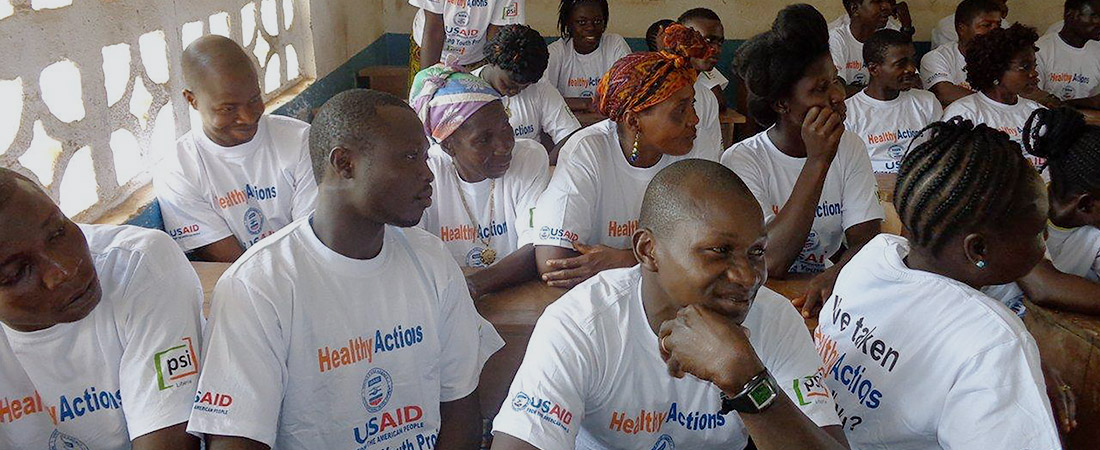
In Liberia, a celebration marks the end of a training on sexual and reproductive health.
The global HIV/AIDS epidemic underscores the importance of reaching the most vulnerable populations with effective prevention and treatment, as well as empowering all youth and young people—female and male—to make healthy choices about their sexual and reproductive health.
EDC develops and supports the implementation of HIV/AIDS interventions in health care and community settings. We design, deliver, and evaluate programs in Africa, Asia, the Caribbean, and the United States. Our work with youth, parents, educators, and health providers addresses stigma and other barriers to the delivery of high-quality sexual and reproductive health services.
Related Content
Home Visiting Supports Mothers, Infants
Breastfeeding holds a number of health benefits for mothers and infants. So why are rates of the practice so low?
Connecting Families Affected by HIV with Care and Support
A new case management system in the Democratic Republic of the Congo is providing a bridge to much-needed social services.
Raising an AIDS-free Generation in South Africa
Taking a comprehensive approach to sexuality education may help prevent HIV and AIDS. EDC’s Viwe Mtshontshi discusses.
Gender Equity—Still an International Priority
Building gender equity into international programs can improve them. EDC’s Nalini Chugani talks about how.
From Literature to Life Skills: One Educator’s Journey
Whether she’s teaching English or health, Naomi Mnthali believes in listening and learning.
Confronting Gender-Based Violence
Education, economic programs are key to rebuilding communities torn apart by sexual and gender-based violence.
Projects
Resources
Here are a few of our resources on HIV and sexual and reproductive health. To see more, visit our Resources section.
This set of materials was designed to help teachers and learners facilitate life skills education in the classroom, with the goal of preventing the transmission of HIV/AIDS and other sexually trans
The Safe in the City kit includes prevention posters, a user's guide, and a DVD of Safe in the City, a 23-minute HIV/STD prevention video designed to be easily integrated into cli
This website features a set of tools and resources from the STEPS to Care Program created to help individuals with HIV management.
These teachers’ guides supplement the Living: Skills for Life, Botswana’s Window of Hope curricula.
STEPS to Care e-Tools is a set of public health strategies for individuals at the highest risk of dropping out of HIV care.
As noted in its executive summary, this report looks at school meals “aid delivery through different windows, both to shed light on financial flows—and to explore discrepancies in the data.” It hig
This brief outlines EDC’s approach to preventing and responding to school-related gender-based violence (SRGBV).
EDC developed Video Opportunities for Innovative Condom Education and Safer Sex (VOICES/VOCES), a video-based intervention designed to increase condom use among heterosexual African American and La
This report presents highlights and findings from EDC’s administration of the MetroWest Adolescent Health Survey to 24,355 high school students in 26 Massachusetts communities in 2014.
This document outlines a bold new vision for EDC's next chapter of work and impact. Building upon our 65-year legacy of global impact in education,